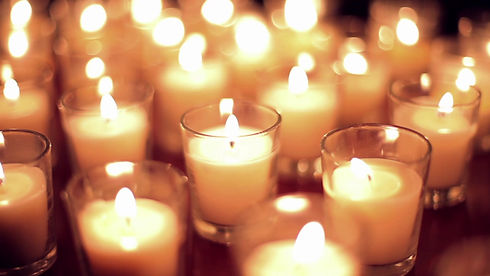


Prayer
Blessed are you Lord our God,
for you come to us and seek to make your home in us.
As we study now,
let our eyes and our ears be open to you
let our hearts find their rest and their joy in you
that we may grow in grace and live to your glory.
Blessed are you, Creator, Redeemer and Sustainer.
Amen.

Introduction
You hopefully have noticed that this course is designed to be progressive, looking at the calling of all believers into the ministry God has 'ordained' for us as we live out our everyday faith.
You may have begun to reflect on your career as a calling or vocation. Maybe you've seen your abilities as 'gifts'. Hopefully you've begun to see that all of your work, done in God's name, is a ministry.
Therefore it should be no surprise that we come now not to that which we know as 'ordained ministry' but rather The Priesthood of All Believers.


Image and Likeness of God
In Tomlin, G (2014) 'The widening circle: Priesthood as God's Way of Blessing the World', the author argues that Priesthood as a concept is a Godly role of salvation - rooted and portrayed in Christ.
Therefore humanity, as a creation made directly in God's image, is created in that Priestly identity.
However he goes on to argue that there is a difference between image and likeness:
"...Genesis portrays humanity both as part of the 'community of Creation' and as set apart for a particular role within it. We belong to the earth, as we are created out of the dust, yet we also stand out, not because of any distinct ability we have, but because we alone out of all Creation have been given the responsibility to protect and nurture the rest of it." (p.88)
We have been given that identity (image), but we have failed in our responsibilities - we have failed to emulate God in loving all God has done. We have failed in trying to achieve a likeness to Christ.
How then can we exercise our proper Priestly ministry again? Think about that for moment now.
The Priesthood of Believers and Creation
Watch this video from Disciplescience.org and as you do so make notes in your journal on the topics of Intercession, Blessing, Offering, Evangelism and Worship.
There will be opportunity for you to reflect on your thinking with your colleagues more generally at the Study Day, but you may wish to start thinking in a more personal sense about these questions:
(1) Who or what do I pray for? (Where are my prayerful energies spent?)
(2) How am I an embodiment of blessing in my everyday faith and life? How sacrificial am I?
(3) How involved am I in the edges and margins of Church life and everyday society?
(4) In what ways is my worship a reflection of heaven and an offering for the world?
Spotlight on Doctrine
Stewardship is a theological belief that humans are responsible for taking care of the world. People who believe in stewardship are usually people who believe in one God who created the universe and all that is within it, also believing that they must take care of creation and look after it forever.
Spotlight on Spirituality
Creation Spirituality (CS) is a theological movement that gained recognition and momentum in the 1980s and 1990s. Associated most widely with the work of former Dominican priest Matthew Fox, CS seeks to shift the emphasis of Christian life, belief, and practice from a focus on redemption to a focus on creation. Often called a spirituality of earth and cosmos, CS views creation as primary revelation that is perpetually emerging. Fox asserts that this creation-centered consciousness can be sought and found in the oldest traditions of the Hebrew Bible and especially in the reflections of medieval Christian mystics such as Meister Eckhart (c. 1260–1327), Hildegard of Bingen (1098–1179), Julian of Norwich (1342–c. 1415), and Mechtild of Magdeburg (1210–1280).
Reflect
Take some time to reflect on your response to the idea that your care for the earth and the environment is a response to the gift God has given you, and a call to all Christians. It is not just for so called 'eco-warriors', but rather it is part of our being the Preisthood of all belivers, essential to living out our vocation and our everyday faith. In no more than 300 words on the discussion board in the Forum (this post is required for those taking the assessment).
Prayer
Watch the video and pray along with it.
Something Practical To Do
Talk to the PCC/Leadership about how you might, as a Church, improve your relationship with creation. Look at the websites below for more information on how you might pursue this such as working towards an Eco Church award.
Share some of what you have found on the discussion board in the Forum (this post is required for those taking the assessment).
